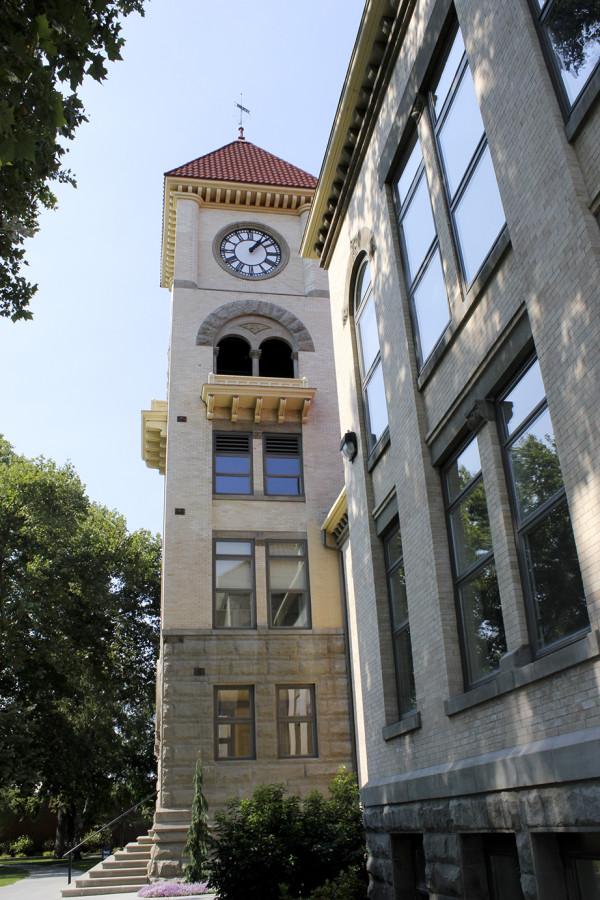In the face of an increasingly grim financial situation for the American middle class, Whitman College tries to walk a narrow line between satisfying its students on the one hand and its faculty and administrators on the other. The college has raised tuition dramatically over the past decade to maintain competitive salaries and academic programs, even as the average family’s income decreased.
Over the past five years, the median household income decreased, while tuition at Whitman and other colleges steadily rose. The result is a situation where the typical American family cannot afford a liberal arts education without significant financial aid, and student debt has gone through the roof. A recent study by the Institute for Policy Studies found state schools with the highest paid executives often have the highest student debt as well. Whitman is an example of the reverse of this trend, keeping student debt low and salaries average while seeking other means to set itself apart in competitive searches for administrators and faculty.
The increasing number of faculty in recent years and the need to provide raises to college employees are major factors behind increases in Whitman’s tuition. The salaries of faculty, staff and administrators make up the majority of the college’s operating costs.
To maintain its high-quality academic program and remain competitive with other colleges and universities, Whitman must compete nationwide for faculty and administrators. Searches for executives can be particularly competitive, as their management positions heavily impact the success of the college.
“It’s a very competitive market for people in these positions; the pools are not large … You don’t find hundreds of applicants for college presidents or chief financial officers,” said President George Bridges. “Often it boils down to 10 or 20 individuals who have the experience you’re looking for.”
While its salaries may not make Whitman College stand out, the college has other means of competing to attract desirable candidates.
“Whitman is more competitive when you look at total compensation than when you look at just salary,” said Chief Financial Office Peter Harvey. “Salary isn’t the only factor that candidates consider in coming to Whitman College. When we go out to recruit people, whether it’s for administrative positions or faculty, there are many key factors.”
Whitman’s reputation for rigorous academics and engaged students can set it apart from other institutions being considered by potential candidates. The college also offers benefits to faculty and administrators’ children, contributing towards their tuition at other schools or offering the opportunity of a free Whitman education.
Every year, the Board of Trustees compares college officers’ pay against that of officers at peer institutions.
“Our efforts are driven by the need to balance continuing to have outstanding people working at Whitman with the need to manage the cost of tuition,” said Brad McMurchie, chair of the Board of Trustees, in an email.
Whitman’s location in Walla Walla can be either a benefit or a burden when recruiting new faculty and administrators. The small-town setting is appealing to candidates, but the college’s location has drawbacks as well. While some candidates’ spouses work independently and can easily relocate, those with their own careers may be hesitant to move to eastern Washington. In a large city, there are many openings in both academic and professional fields. In Walla Walla, those options are limited.
“Pretty much at the same time as I was offered a position [at Whitman], the question came up: ‘What about my spouse?'” said Assistant Professor of Art History and Visual Culture Studies Lisa Uddin. “It was inseparable; the prospects for me here were very much related to the professional prospects for my spouse.”
When possible, Whitman employs “trailing spouses” as part-time faculty or staff at the college. However, at other times no positions are open which a spouse is qualified for or interested in taking, and they must search for employment or start a business in the wider Walla Walla community.
The financial crisis of 2008 and subsequent recession led to several reforms in faculty and administrative compensation in 2009. Health insurance is a major cost for employers; when the recession struck, Whitman quietly moved to a progressive model of health insurance where administrators, faculty and staff with higher salaries contribute more to the insurance program than those who are paid less.
The college also froze salaries for all faculty and staff for 2009, and executives took a small symbolic pay-cut in solidarity with families struggling in the economic recession.
“The impact [of the symbolic pay-cut] was positive from a moral standpoint, in that [the college officers, faculty and staff] were all in this together during these very difficult times, but it was for one year. And if we froze salaries multiple years in a row, not just for senior officers but for staff and faculty, that would become problematic. It would be demoralizing and frustrating,” said Harvey.
When the recession officially ended in 2009, Whitman resumed raising salaries. However, since then, the income of the typical middle class family has continued to fall. Though net wealth has risen, gains in income have been concentrated among the upper class, and the majority of households have seen their income decrease.
Whitman tries to keep steadily rising tuition from preventing middle- and lower-class students from attending the college by raising need-based financial aid. While student debt rose nation-wide in the past decade in 2014, the typical Whitman graduate left campus with $18,989 in debt, well below the national average of $33,000.
“It’s a tough balancing act because you also want to invest in improving the quality [of the academic program],” said Harvey. “You have to be stronger and be competitive because if we fall behind, students aren’t going to want to come here with what it costs.”





